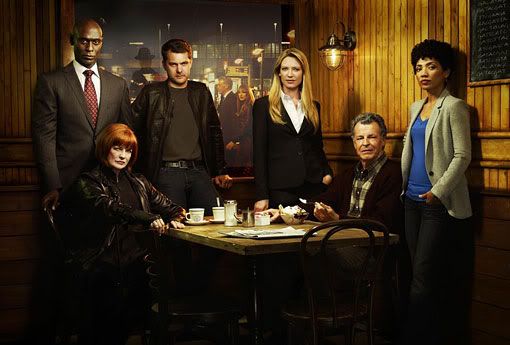
I’m a sucker for the fantastical and out-there just as much as any nerd. I grew up adoring the concept of giant fighting robots that disguised themselves as cars. I like faster-than-light travel, I love dragons, superheroes do not seem ridiculous to me, and I believe anything is possible when the human mind is set to a task.
That said, you have to keep it real in some way or another.
It’s one of the reasons I liked Nolan’s take on Batman so much. It completely divested itself of any sort of camp, far-fetched villains, or completely unbelievable science Batman would need to solve his problems. None of the solutions are magical. And while several characters from The Avengers are arguably gods amongst men, they are presented in such a way that they are still characters, using their powers and abilities as tools rather than being defined by them. “Take [the Iron Man suit] away, and what are you?” is a question Captain America could have put to Bruce Banner or Thor, and both of them would have had answers. They’re real characters, even if their powers make them much larger than life.
It can be a fine line to walk, though. You can’t ever let a special power become a one-size-fits-all answer to whatever problem is in front of your hero. Take, for example, the action-comedy-espionage TV series Chuck. For a while, the ubiquitous Intersect computer taking up Chuck’s poor brain is simply an encyclopedic database allowing him to provide vital intelligence and clues to his handlers. However, it later gets upgraded and allows him to, among other things, know kung-fu. After introducing a much more plausible and in-character means for him to step up to the level of the other two leads – a wrist-mounted computer that can hack anything, displays nearby floor plans, and could presumably be worked on by our hero – he’s handed a different means that is mostly used as a deus ex machina to get him out of trouble.
By contrast, consider Fringe. At no point in that show is an answer easily found or invoked to get our characters out of a situation. Choices must be made, actions always have consequences, and the status quo of the show is constantly in question. There’s no magic button to return everything to normal. While the show does have problems of the week, the resolution of the problem does not necessarily mean a happy ending.
It could be argued that Chuck is a comedy and Fringe is not, therefore the former does not need to be taken as seriously or given the same scrutiny, but that argument’s faulty. Giving your characters an easy way out through some artificial or magical means just smacks of laziness to me. If you make such things too prevalent or rely on them to drive your story forward, your characters are going to suffer. This is true no matter what the genre or medium is. Harry Dresden may be a wizard, but never do his powers allow him an easy solution, and all of his actions have consequences, sometimes deadly ones.
I’m in the third season of both Chuck and Fringe (thanks, respectively, to a friend’s DVD collection and Amazon instant video) and the disparity is pretty clear to me. As characters grow and tension mounts in Fringe, I feel characters becoming stunted and stagnant in Chuck. I maintain that you cannot let the trappings of genre and the coolness of powers or gadgetry overshadow the characters or stakes of your story. Even when you’re dealing with the most far-flung of fantasies, you have to keep it real.



August 15, 2012 at 10:26 am
I’m a fan of both Chuck and Fringe and I have to agree with you! I don’t think I necessarily like Fringe better than Chuck (there’s a breezy, cheerful wittiness to Chuck that I really enjoy) but I’m never going to worry about the characters on Chuck the way I worry about the Fringe cast. To my mind, it’s important that viewers feel like anything can happen – Game of Thrones does an excellent job of this.